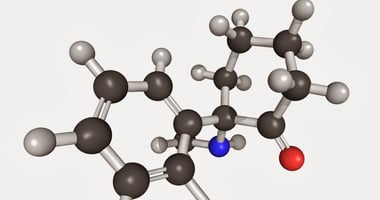Ketamine may be able to rapidly reduce persistent suicidal thoughts in medicated patients with...
Drug Targeting NMDA Receptor Rapidly Improves Depression Symptoms in Phase II Study
 |
The findings are extremely encouraging, as current medications for depression can take up to six weeks to show effects, but there are still many hurdles to overcome in the development of this drug.
For one, this current clinical study employed an intravenous administration of NRX-1074, which would not be broadly applicable. However, with the dosage guidance gained from these results, Naurex, the makers of NRX-1074, are proceeding to a second phase II trial using an oral pill. The new study will also evaluate whether repeated daily doses provide a sustained effect, which is also critical if this compound can be a front-line treatment.
The concept of targeting NMDA receptors arose from studies showing that ketamine can rapidly improve depression symptoms, albeit with many risks. Several pharmaceutical companies have been working on compounds that can mimic the mood improvement without the negative side effects.
To learn more about research into ketamine and NMDA receptors for depression, see the recent Psychiatric News article “Researcher/Clinician Working to Unlock Ketamine’s Mysteries.”
(shutterstock/Blade Tucker)





